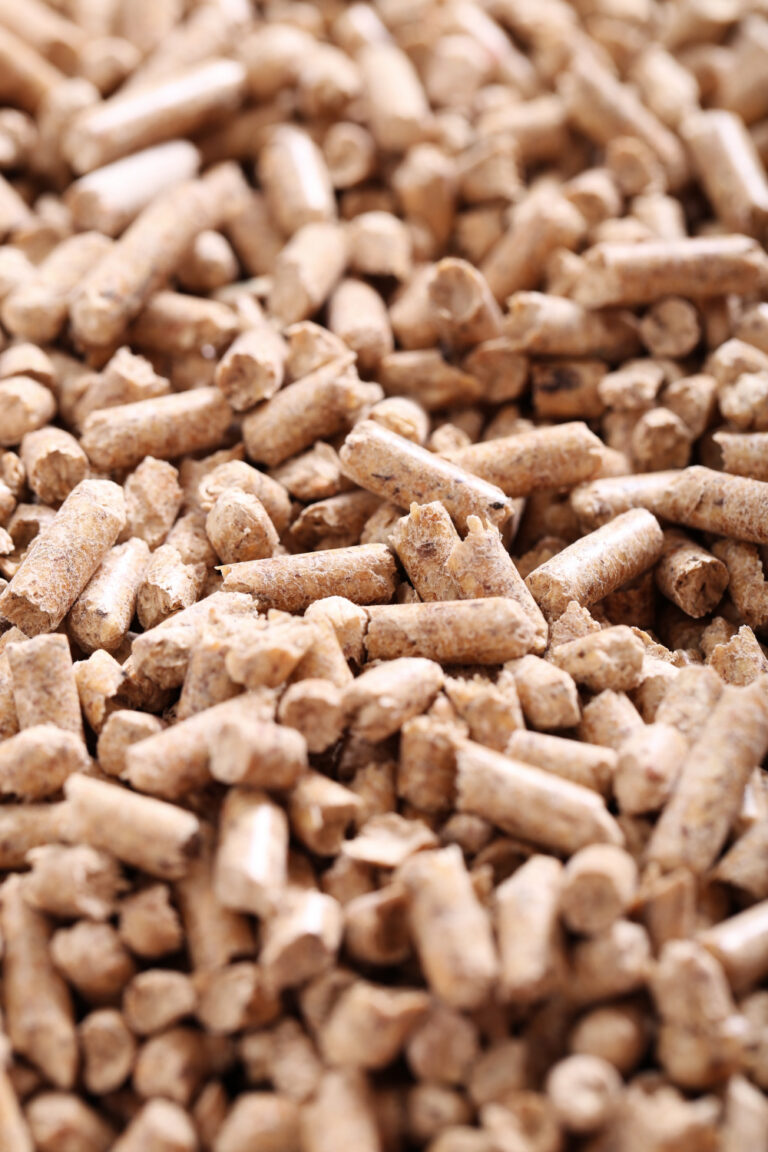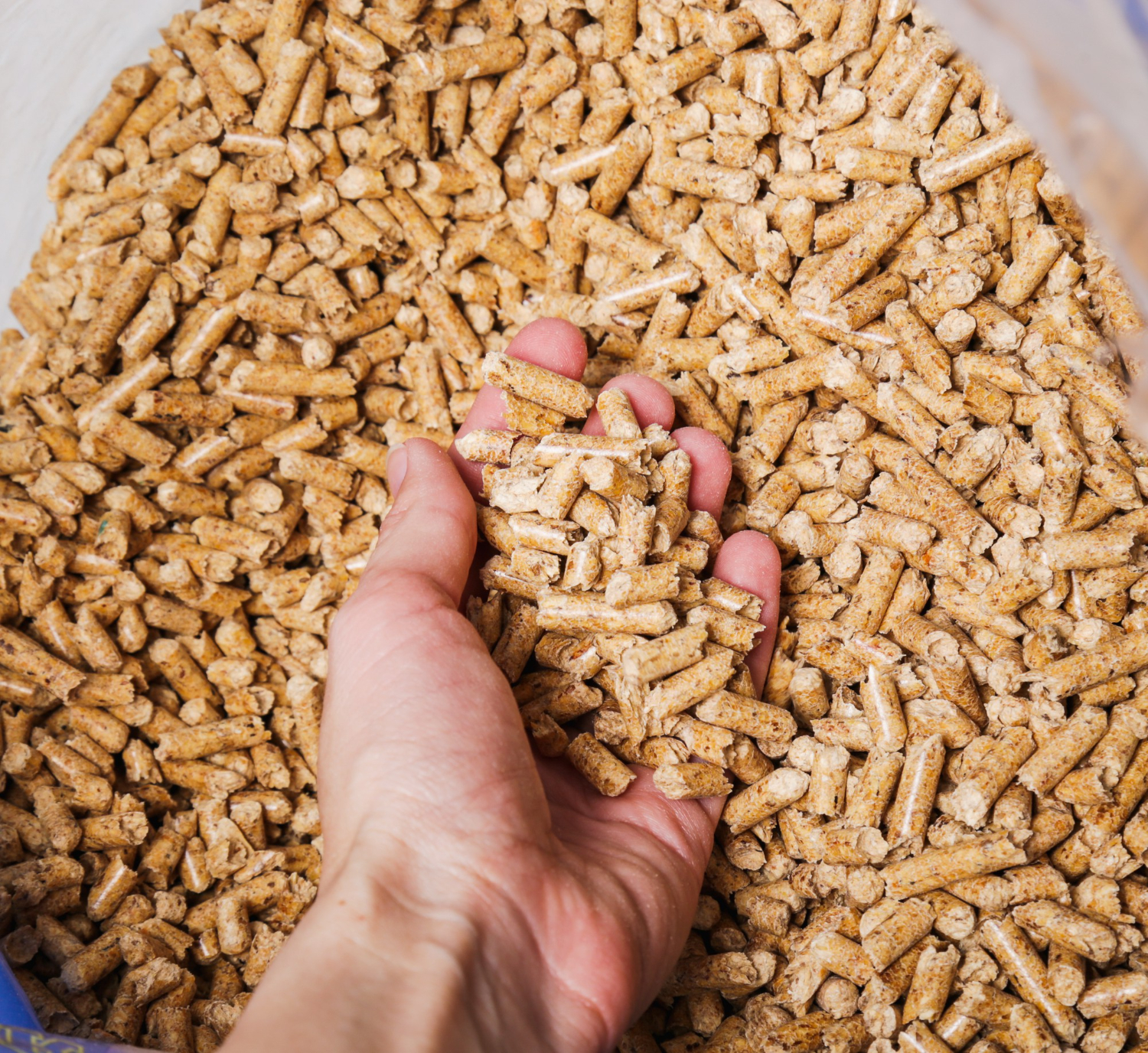Biomass pellets have emerged as a viable and environmentally friendly alternative to traditional fossil fuels.
Derived from organic materials such as agricultural residues, forestry waste, and dedicated energy crops, biomass pellets offer numerous advantages in terms of sustainability, energy efficiency, and reduced carbon emissions.


Biomass pellets are a remarkable renewable energy source that has gained prominence due to its eco-friendly nature and diverse applications.
Derived from organic materials such as agricultural residues, forestry waste, and dedicated energy crops, biomass pellets offer numerous advantages in terms of sustainability, energy efficiency, and reduced carbon emissions.
Process of manufacturing is through palletization, a process that involves compressing biomass feedstock into small, dense pellets.
The production process includes feedstock preparation, pelletization using high pressure, and cooling and packaging for storage and transportation.

Environmental Benefits

Renewable & Carbon Neutral
Biomass is a renewable energy source as it comes from organic matter that can be replenished.

Less Greenhouse Gas Emission
Biomass pellets have lower emissions of greenhouse gases compared to fossil fuels.

Waste Reduction
Biomass pellets offer a sustainable solution for utilizing agricultural residues, forestry waste, and other organic materials
Biomass pellets offer a sustainable and efficient solution for meeting energy demands while reducing greenhouse gas emissions and promoting environmental stewardship.
Contact Us
For further information or inquiries about biomass pellets and renewable energy, feel free to get in touch with our team of experts
